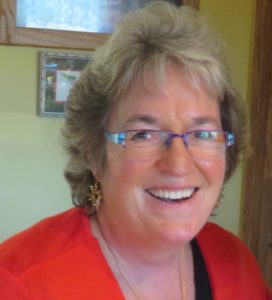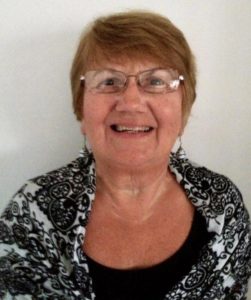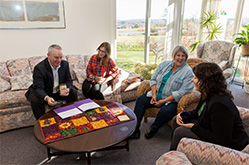The Dryden Barber Shop has been in business 30 years, and Sylvia Short, the shop’s owner, wanted to throw an anniversary party. In keeping with the shop’s tenth, twentieth and twenty-fifth anniversaries, this party would be a fundraiser for a charity, but which one? “I thought, everyone loves Hospicare,” she says. “There’s not one person who says anything negative about hospice. Wow, how could anyone say no? It’s a win-win!”
 Since making that decision, Sylvia has been planning the party with all benefits to go to Hospicare. She’s happy to do it, she says, because she is grateful for the care Hospicare gave her 85-year-old mother at the end of her life. Her mother was suffering from interstitial lung disease and reached a point where she decided to call Hospicare. “Mom called Hospicare herself and said, ‘What are my choices? I don’t know what to do,’” Sylvia remembers. “She told us she’d called hospice to find out the next step.”
Since making that decision, Sylvia has been planning the party with all benefits to go to Hospicare. She’s happy to do it, she says, because she is grateful for the care Hospicare gave her 85-year-old mother at the end of her life. Her mother was suffering from interstitial lung disease and reached a point where she decided to call Hospicare. “Mom called Hospicare herself and said, ‘What are my choices? I don’t know what to do,’” Sylvia remembers. “She told us she’d called hospice to find out the next step.”
Hospicare nurse Amanda McLaughlin, RN, immediately visited Sylvia’s parents in their home to explain hospice and to assess Sylvia’s mother for hospice service. Then Amanda became her nurse, visiting once a week to check on her and to keep her comfortable. Amanda and the rest of the Hospicare team made a real difference in the lives of all family members, Sylvia says. “That’s what Hospicare is known for. They help you. Hospicare made a huge impact because they were so good with my father. They were so good with all of us. It’s the way they present themselves. They’re not just there for the patient, they’re there for the whole enchilada. We certainly appreciated it.”
The Dryden Barber Shop event will be held at the Dryden Hotel and include a live auction starting around 3:30, face painting from 3:00 to 4:00, cake and a hot dog sale. There is a possibility of a raffle or silent auction, as well.
To see the items that will be auctioned, visit the Dryden Barber Shop’s Facebook page.
What: Dryden Barber Shop’s 30th Anniversary Celebration and Fundraiser
When: Sunday, May 7, 2:00−5:00 PM.
Where: The Dryden Hotel, 42 West Main Street, Dryden


